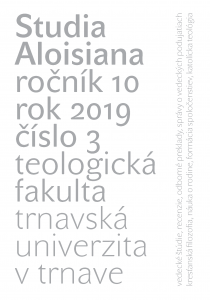Ľudské vedomie v kontexte filozofických teórií o vzťahu mysle a tela
Human Consciousness in the Context of Philosophical
Mind–Body Theories
Author(s): Ľuboš RojkaSubject(s): Epistemology, Philosophy of Science
Published by: Teologická fakulta Trnavskej univerzity
Keywords: human consciousness; mind; dualism; physicalism;
Summary/Abstract: Explanation of human consciousness depends not only on partial answers to basic questions but also on the overall understanding of mental life. A broader perspective may reinforce the reasons for some of the proposed theories. Since there is not yet a direct method of exploring the relationship between human consciousness and the brain, a multi- -disciplinary and multi-methodological approach is needed. The basic problem is the choice of starting point and preference for the method of investigation. The four contemporary authors, S. Goetz, W. Hasker, N. Murphy, and K. Corcoran, have different approaches depending on which aspects of human person emphasize as primary and relevant. A short analysis suggests that the conscious experience is best explained by Hasker, without adding redundant qualities and need of God’s intervention, as is in the theory of Goetz, and without exaggerating the role of the linguistic and cultural constructs, as it appears in Murphy’s writing, and without reducing it to just a more complex arrangement of the matter, as it is in Corcoran’s publications.
Journal: Studia Aloisiana
- Issue Year: 10/2019
- Issue No: 3
- Page Range: 43-57
- Page Count: 15
- Language: Slovak

